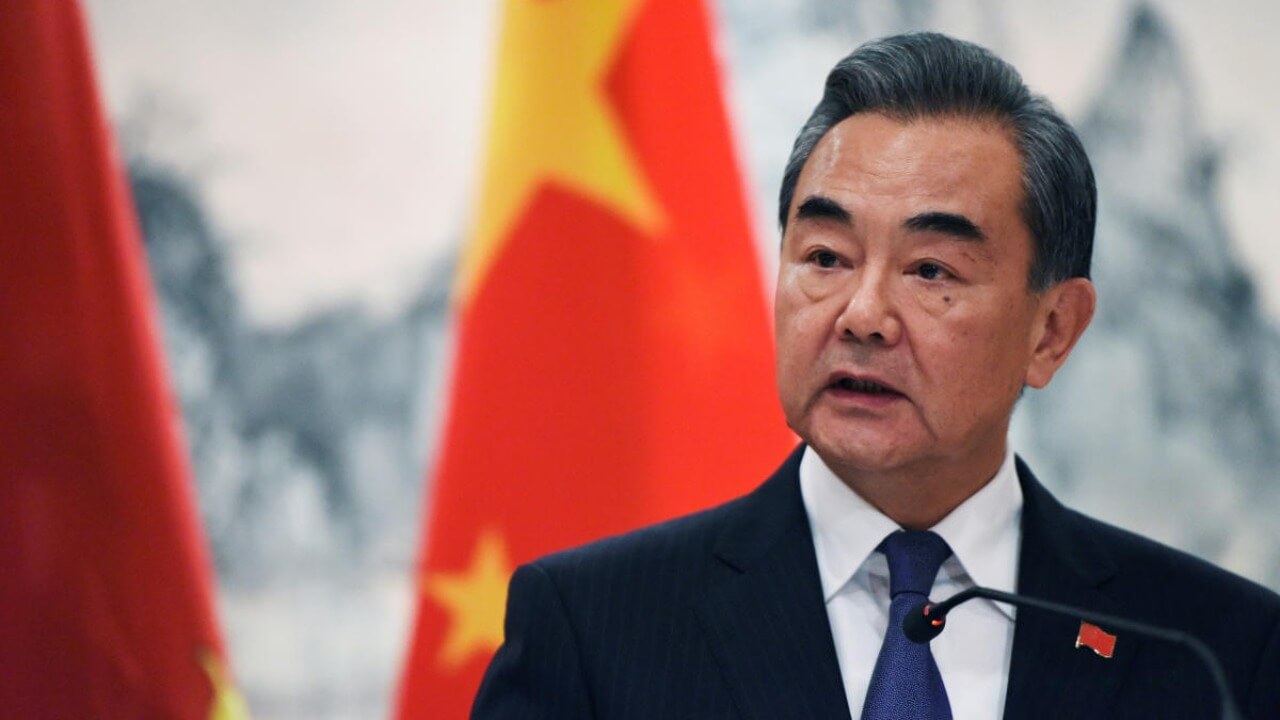On Wednesday, India rejected the “uncalled [for] reference” to Kashmir made by Chinese Foreign Minister Wang Yi at the Organization of Islamic Cooperation (OIC) meeting in Islamabad, and reiterated that matters related to the region are “entirely the internal affairs of India.”
Ministry of External Affairs (MEA) spokesperson Arindam Bagchi said that any country, including China, did not have any “locus standi to comment” on matters pertaining to the Union Territory of J&K. He also stated that countries making such comments “should note that India refrains from public judgement of their internal issues,” possibly referring to Hong Kong, Taiwan, Xinjiang, the South China Sea, and other such topics.
Our response to media queries on reference to Union Territory of Jammu & Kashmir made by Chinese Foreign Minister in his speech to Organisation of Islamic Cooperation in Pakistan:https://t.co/0VrVAR9tOT pic.twitter.com/pxvhD9G3Vm
— Arindam Bagchi (@MEAIndia) March 23, 2022
Wang said that China shares the “same hope” as that of other group members in their support for Kashmir’s “just freedom struggles,” reiterating China’s longstanding support for Pakistan regarding the Kashmir dispute with India. Apart from Wang, several other dignitaries addressed the decades-long J&K conflict at the two-day meet. OIC Secretary-General Hissein Brahim Taha said that the organisation is worried that the conflict is continuing “without any signs of a solution,” and underscored its “strong and firm” support for the people of J&K. He added that the OIC’s support for Kashmir is “an expression of full solidarity” with the Kashmiris’ right to “self-determination.”
He further said that the support of the Organization is an expression of the full solidarity of the Muslim world with the people of #Kashmir in its struggle for self-determination. #OIC48CFM #OICInPakistan
— OIC (@OIC_OCI) March 22, 2022
Read more: SUMMARY: OIC Foreign Ministers’ Conference
Noting the importance of dialogue to reach a peaceful solution to the issue, Taha said that the organisation “will spare no effort in raising and voicing its solidarity” with Kashmiris. Furthermore, he urged the international community to assist the people of J&K and called on human rights groups to continuously monitor “violations of human rights in the occupied Kashmir.”
Expectedly, the topic was also raised by Pakistani Prime Minister (PM) Imran Khan during the conference, who criticised the 57-member group for being a “divided house” on the Kashmir issue. “We have failed both the people of Palestine and Kashmir,” he declared, warning that if member countries cannot remain united on such issues, abuses against the Muslim community will continue.
“We have failed both the Palestinians and the people of Kashmir.”
— TRT World (@trtworld) March 22, 2022
Pakistan’s Prime Minister Imran Khan has urged Islamic leaders to “unite on core issues” to combat the “blatant injustice” and human rights abuses Palestinians and Kashmiris face pic.twitter.com/m6OEb1XkN4
Wang also met with several other top-level Pakistani officials during his visit, including President Arif Alvi. Alvi, too, highlighted that India’s actions are causing instability and tensions in the Kashmir region, and stated that the response to the Kashmir crisis should be approached with “unity.” In addition, the Pakistani President thanked China for its support before the Financial Action Task Force (FATF).
In exchange for China’s tacit support to Pakistan on the Kashmir issue, Alvi also declared that Islamabad will adhere to the “One China” policy on all fundamental issues, including Taiwan, Tibet, Hong Kong, and the South China Sea.
Wang also met with PM Khan and discussed several geopolitical issues, such as the Ukraine crisis, for which they expressed their support for peace and dialogue. During his meeting with Pakistani Foreign Minister Shah Mahmood Qureshi, Wang discussed the progress made in the China-Pakistan Economic Corridor (CPEC) and the need to curb the threat of terrorism posed by the “Eastern Turkistan Islamic Movement.”
Wang’s comments on Kashmir come amid reports that he is scheduled to meet with Indian Minister for External Affairs Subrahmanyam Jaishankar and National Security Adviser Ajit Doval in New Delhi following the OIC meet. His visit will be the first since 2020, when tensions between India and China heightened after the Galwan Valley clash in Ladakh. In fact, Wang has reportedly invited Jaishankar to Beijing for a reciprocal visit and could also use his trip to New Delhi to press for Indian PM Narendra Modi to travel to China for the upcoming BRICS (Brazil, Russia, India, China, and South Africa) summit.
However, neither of the two countries have formally acknowledged that the meeting in New Delhi will take place. In fact, soon after reports of Wang’s possible visit to India, Indian Foreign Secretary Harsh Vardhan Shringla said that India’s relations with China could not be “business as usual” until the matter pertaining to the border skirmish in Ladakh has been resolved. On the other hand, while addressing the media in Beijing prior to his Pakistan trip, Wang said that, as Asia’s two largest countries, India and China should work together rather than focusing on “draining each others’ energies.”

